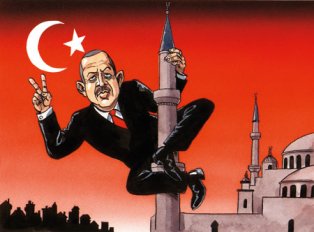By: Express News Service
Four months after the electorate had deprived Turkey’s Justice and Development Party (AKP) of a majority for the first time in 13 years, the AKP has won a landslide victory in snap parliamentary polls.
The June verdict saw tactical voting to deny President Recep Tayyip Erdogan a complete power grab, evidenced by his alleged strategy to turn Turkey into a de facto one-party state, elevating himself from prime minister to the ceremonial post of president, which he then planned to empower through a constitutional amendment. Yet, despite regaining its majority, the AKP fell short of the number needed to call a referendum.
Predicting a hung parliament, experts had emphasised Erdogan’s need to learn to share power, since his implacability was seen as the reason behind the AKP’s failure to stitch together a coalition post-June. Much has changed in Turkey in the intervening months. Ankara is more involved in the war against the Islamic State in Syria, even as Turkey suffered its worst terror attack on October 10, when two suicide bombings at a political rally killed 102 people. Equally importantly, the ceasefire between the government and Kurdish insurgents fell apart, leading to a spiral of violence. Circumstances appear to have conspired to return the nationalist vote to the AKP, which was hoping to ride concerns about stability and security, and projected itself as the only party capable of delivering on both, apart from promising an economic revival.
” “
Once hailed as a reformist, Erdogan’s leadership has seen increasing repression against political opponents and dissidents, including the press. The AKP’s victory has triggered anxieties in minority and liberal quarters, especially among the Kurdish population. The party’s first task is to offer a message of unity to a divided society. It must also demonstrate a willingness to break from the narrative of the one-man show that has been the story of Turkey under Erdogan for the last four years.









